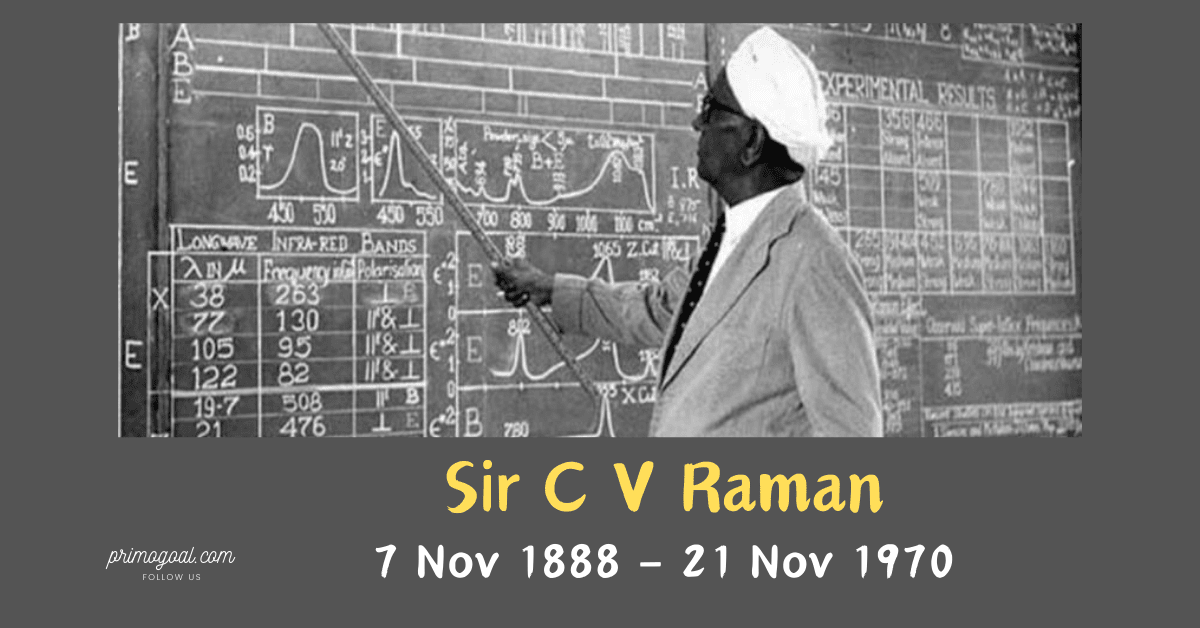National Science Day – February 28th marks a day of immense significance in India. It’s a day to commemorate the remarkable discovery of the Raman Effect by the brilliant Indian physicist, Sir C.V. Raman. His groundbreaking work on the scattering of light earned him the prestigious Nobel Prize in Physics in 1930, making history for India.
National Science Day 2024: Fostering a Future with Science
National Science Day reminds us of the transformative power of scientific inquiry. It’s a reminder that when we invest in the pursuit of knowledge, we unlock possibilities for progress and a better future.
| Description | Detail |
|---|---|
| Full Name | Chandrasekhara Venkata Raman |
| Date of Birth | November 7, 1888 |
| Place of Birth | Trichinopoly, Madras Presidency, British India (now Tiruchirappalli, Tamil Nadu, India) |
| Father | Chandrasekaran Ramanathan Iyer |
| Mother | Parvathi Ammal |
| Age at Starting a Bachelor’s Degree | 14 years old |
| Year of Completing Degree | 1904 |
| Awards | Fellow of the Royal Society (1924) Hughes Medal (1930) Nobel Prize in Physics (1930) Bharat Ratna (1954) |
The History: The Raman Effect
My tribute to Bharat Ratna Sri C V Raman on his Birth Anniversary. First Indian to be awarded with the prestigious Nobel prize for Physics in 1930.#CVRaman pic.twitter.com/ugUgA7cHF5
— Ramya Haridas 🇮🇳 (@RamyaHaridasMP) November 7, 2019
In 1928, Indian physicist Sir Chandrasekhara Venkata Raman made a remarkable discovery that transformed our understanding of how light interacts with matter. Observing the scattering of light passing through a liquid, he noticed a change in the wavelength of the scattered light. This phenomenon came to be known as the Raman Effect.
This discovery revealed fundamental information about the molecular structure of substances. Sir C.V. Raman’s groundbreaking work earned him the Nobel Prize in Physics in 1930, etching India’s name into scientific history.
Why does India celebrate February 28 every year as a National Science Day?

National Science Day in India serves several key purposes:
- Honoring Scientific Legacy: It pays tribute to Sir C.V. Raman and the countless scientists whose contributions have shaped our world.
- Promoting Scientific Inquiry: National Science Day encourages rational thinking, a questioning spirit, and an evidence-based approach to problem-solving.
- Inspiring the Next Generation: Exposing young minds to the wonders of science can spark a passion for innovation and lead to future breakthroughs.
- Science for Societal Progress: The day highlights the role of science in addressing challenges like healthcare, sustainable energy, and environmental protection.
What is the theme of Science Day 2024 in India?
On 7 Feb 2024, the Ministry of Science & Technology announced ” Theme for the National Science Day (NSD) 2024 is “Indigenous Technologies for Viksit Bharat”.
Previous themes have focused on areas such as “Science for Global Sustainable Future”, “Science and Technology for Sustainable Development”, and “Future of STI: Impacts on Education, Skills, and Work.” These themes underscore the power of science to address global challenges and build a better world.
How to Participate
National Science Day is not just for scientists! There are numerous ways to get involved:
- Visit Science Exhibitions and Fairs: Check for science exhibitions, workshops, and fairs happening in your city. They offer a great opportunity to witness the wonders of science in action.
- Attend Lectures and Talks: Educational institutions and science centers often organize special lectures and talks delivered by eminent scientists and researchers.
- Participate in Competitions and Quizzes: Put your scientific knowledge to the test in science contests and quizzes.
- Explore Museums and Planetariums: Spend the day immersing yourself in the fascinating world of science and technology at science museums or planetariums.
- Engage in Science Experiments at Home: If you are a parent or teacher, conduct simple and fun science experiments to ignite a spark of curiosity in children.
National Science Day is a reminder that science shapes our world and has the incredible potential to solve problems both big and small. Let’s embrace the spirit of discovery and work together to ensure a brighter, science-driven future.
FAQ’s
Who was the first Indian scientist to win a Nobel Prize?
The first Indian scientist to win a Nobel Prize was Sir Chandrasekhara Venkata Raman. He won the Nobel Prize in Physics in 1930 for his groundbreaking discovery of the Raman Effect, which describes the scattering of light when passing through a transparent material.














+ There are no comments
Add yours